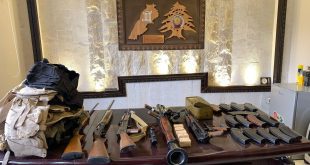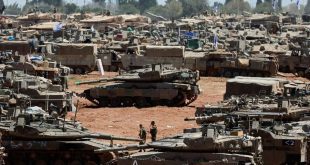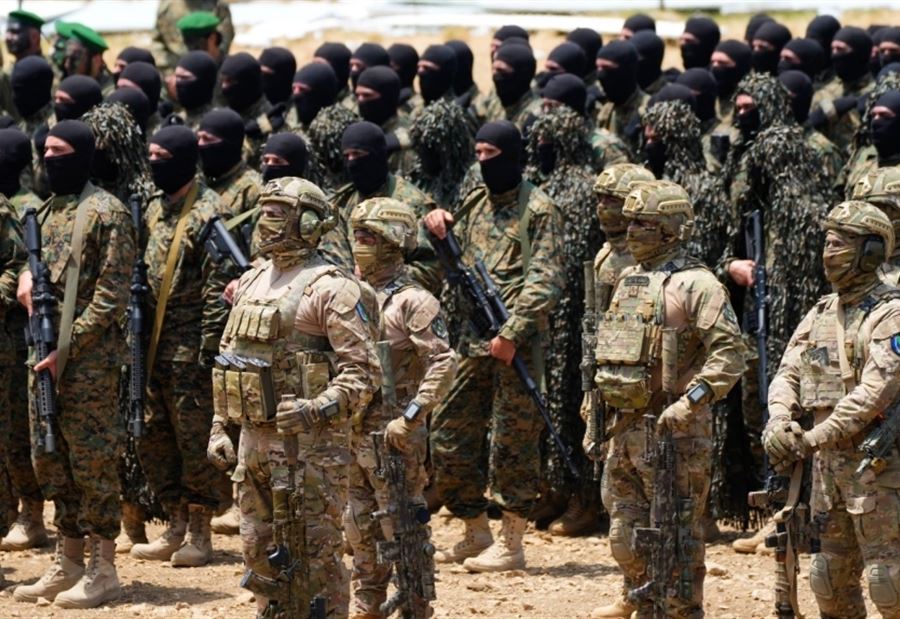“مفاوضات نارية بين الميدان والضاحية: حزب الله يرد الإثنين على المقترح الأميركي لوقف النار”
مفاوضات نارية بين الميدان والضاحية.. وجواب حزب الله الإثنين
أفادت مصادر دبلوماسية في لبنان لصحيفة “اللواء” أن لبنان أبلغ الوسيط الأميركي آموس هوكشتاين، والفريق المعاون له، بما في ذلك السفيرة الأميركية في بيروت، ليزا جونسون، بأن الضغط العسكري لن يُجبر لبنان على قبول صيغة وقف النار التي تم إعدادها في واشنطن من قبل إسرائيل وبعض كبار المسؤولين في الخارجية الأميركية والبنتاغون ووكالة الاستخبارات المركزية الأمريكية (CIA). وتضم هذه الورقة 5 صفحات و13 بندًا، وكان قد اطلع عليها رئيس الحكومة نجيب ميقاتي قبل استلامه النسخة الرسمية.
كما طلبت الحكومة اللبنانية، وفقًا للمصادر، أن يتم إبلاغ إسرائيل بالموقف اللبناني، مع استمرار دراسة ملاحظات لبنان على المقترح من منطلق حرصه على وقف النار، شريطة أن يكون وفق مرجعية القرار 1701.
وفي هذا السياق، قالت مصادر سياسية مطلعة إن لبنان لم يقرر بعد موقفه النهائي، لكن رئيس مجلس النواب نبيه بري كان قد حدد مسبقًا موقفًا رافضًا لأي مساس بالسيادة اللبنانية. ورأت المصادر أن هناك نقاطًا في المقترح الأميركي لا يمكن القبول بها، مما يتطلب التشاور، وأن حزب الله قد فوض الرئيس بري لتمثيله في النقاشات، مما يتيح له تقديم رد الحزب باسم المقاومة.
وأشارت المصادر إلى أن التسوية لم تقترب من نهايتها، وأن ما يتم تداوله لا يشير إلى إمكانية الحل في الوقت الحالي، وبالتالي يواجه لبنان مرحلة جديدة من التصعيد قبل استئناف المفاوضات. كما أكدت المصادر أن حزب الله سيقدم رده على المقترح يوم الإثنين المقبل.
الرئيس بري من جهته، نفى أن يتضمن المقترح الأميركي أي “حرية حركة” للقوات الإسرائيلية في لبنان، مؤكدًا أن هذا غير مقبول بالمطلق. وأوضح أن لبنان لن يقبل بأي انتهاك لسيادته، وأشار إلى أن المقترح يتضمن أيضًا تشكيل لجنة إشراف على تنفيذ القرار 1701، وهي لجنة لا تحظى بموافقة لبنان.
وأضاف بري أن هناك نقاشًا حاليًا حول آلية بديلة لمتابعة تطبيق القرار 1701، وأن لبنان لا يمانع تفعيل الآلية الموجودة بالفعل، وهي آلية القوة الدولية في جنوب لبنان (اليونيفيل) التي تشرف على تنفيذ القرار بعد حرب 2006.
وأشار بري إلى أن المفاوضات في إطار وقف النار تتقدم بشكل إيجابي، على الرغم من أنه أكد أن العبرة ستكون في الخواتيم. كما أكد أن زيارة المبعوث الأميركي آموس هوكشتاين إلى لبنان ستكون مرتبطة بتطورات المفاوضات.
في السياق نفسه، قال بري إن الهجمات الإسرائيلية على بلدة تبنين، التي تُعتبر معقلًا سياسيًا له، لم تغير من موقفه، بل على العكس زادت من عزيمة اللبنانيين في صمودهم. واعتبر أن رئيس الحكومة الإسرائيلية بنيامين نتنياهو يظن أن الضغط العسكري سيجبر لبنان على التنازل، لكن بري أكد أن هذا النهج لن ينجح مع اللبنانيين.
من جهة أخرى، أفادت صحيفة “وول ستريت جورنال” بأن نتنياهو يخطط لدخول العمق اللبناني في حال رفض حزب الله وقف إطلاق النار، بينما ناقش وزير الخارجية الأميركي أنتوني بلينكن مع نظيره الإسرائيلي جدعون ساعر ضرورة التوصل إلى حل دبلوماسي في لبنان يتيح للمدنيين العودة إلى ديارهم.
كما أفيد بأن حزب الله سيقدم رده الرسمي على المقترح الأميركي يوم الإثنين المقبل، مع العلم أن لجنة إشراف دولية ستراقب تنفيذ الاتفاق، وستتألف من أطراف لبنانية وإسرائيلية وأممية، مع احتمال انضمام ممثلين عن الولايات المتحدة وفرنسا ودولة عربية.
وفي تطور آخر، أعلن كبير مستشاري المرشد الإيراني علي لاريجاني من بيروت دعم بلاده لقرار المقاومة اللبنانية ودعم الحكومة اللبنانية في اتخاذ القرارات المتعلقة بوقف إطلاق النار.
وفي المجال الدبلوماسي، استقبل وزير الخارجية والمغتربين في حكومة تصريف الأعمال عبد الله بوحبيب السفير الفرنسي في لبنان، حيث تم بحث الجهود الفرنسية المبذولة لوقف العدوان الإسرائيلي وتطبيق القرار 1701.
الوضع الميداني في لبنان:
ميدانيًا، واصل الجيش الإسرائيلي غاراته الجوية على أحياء الضاحية الجنوبية لبيروت، مستهدفًا مناطق عدة مثل الغبيري ودويرة الطيونة. كما دارت اشتباكات عنيفة بين الجيش الإسرائيلي والمقاومة في قطاع مغربي عندما حاول الجيش الإسرائيلي التقدم نحو طيرحرفا وشمع.
وفي القطاع الشرقي، استهدفت المقاومة اللبنانية تجمعًا لقوات الاحتلال في طلوسة، حيث أسفرت الاشتباكات عن إصابات في صفوف الجنود الإسرائيليين. ووفقًا للجيش الإسرائيلي، أصيب 9 عسكريين في هجوم مزدوج على غزة وجنوب لبنان.
المصدر: اللواء
Intense Negotiations Between the Battlefield and the Southern Suburbs: Hezbollah to Respond on Monday to US Ceasefire Proposal
Diplomatic sources in Lebanon reported to Al-Liwaa that Lebanon has informed US mediator Amos Hochstein and his team, including US Ambassador to Beirut, Lisa Johnson, that military pressure will not force Lebanon into accepting the ceasefire proposal drafted in Washington by Israel and senior officials from the US State Department, Pentagon, and CIA. This proposal consists of five pages and thirteen clauses and was presented to Prime Minister Najib Mikati before receiving the official version.
According to sources, Lebanon has requested that Israel be informed of its position while continuing to study the proposal, with Lebanon emphasizing the need for a ceasefire under UN Security Council Resolution 1701.
Political sources indicated that Lebanon has not finalized its position yet, but Speaker of Parliament Nabih Berri has previously stated that Lebanon will not accept any violations of its sovereignty. They pointed out that there are certain points in the proposal that Lebanon cannot accept, which requires consultations. Hezbollah has delegated Speaker Berri to represent the party in discussions, allowing him to negotiate on behalf of the resistance.
These sources further noted that a resolution is not yet close and that the current discussions do not point to a quick resolution. As a result, Lebanon faces a new phase of escalation before any new talks regarding the desired solution. Hezbollah is expected to provide its official response to the proposal on Monday.
Speaker Berri also denied that the proposal includes any “freedom of movement” for Israeli forces within Lebanon, emphasizing that this is unacceptable and that Lebanon will not tolerate any infringement on its sovereignty. He also mentioned that the proposal involves the formation of a committee to oversee the implementation of UN Resolution 1701, which Lebanon does not accept.
Berri added that discussions are ongoing regarding alternative mechanisms to monitor the implementation of Resolution 1701, and Lebanon is open to activating the existing mechanisms, particularly the international forces (UNIFIL) deployed in southern Lebanon.
The discussions are progressing positively, according to Berri, although the ultimate outcome remains uncertain. The visit of US envoy Amos Hochstein to Lebanon will depend on the development of negotiations.
Regarding Israeli attacks on his stronghold in the town of Tebnine, Berri stated that Netanyahu's strategy of pressuring Lebanon through military force would not work, and that such actions only strengthen Lebanese resolve.
In a related development, The Wall Street Journal reported that Israeli Prime Minister Netanyahu plans to deepen the Israeli military presence in Lebanon if Hezbollah refuses to agree to a ceasefire. Meanwhile, US Secretary of State Antony Blinken discussed with his Israeli counterpart, Gidon Saar, the need for a diplomatic solution to the situation in Lebanon that would allow civilians to return to their homes.
Hezbollah's official response to the ceasefire proposal is expected on Monday. Sources confirmed that the monitoring committee for the agreement would include Lebanese, Israeli, and UN representatives, with possible additions from the US, France, and an Arab country.
Additionally, Iranian Supreme Leader’s senior advisor Ali Larijani expressed support for Lebanon’s resistance and any decision taken by the Lebanese government to stop the fighting, during his visit to Beirut, where he met with both President Berri and Prime Minister Mikati.
In the diplomatic sphere, Lebanese Foreign Minister Abdullah Bou Habib met with the French Ambassador to Lebanon, Hervé Magro, to discuss ongoing efforts, including France's role in seeking a ceasefire and the full implementation of UN Resolution 1701.
Field Situation in Lebanon:
On the ground, Israeli airstrikes on southern Beirut’s suburbs continued for the fourth consecutive day, targeting areas such as Ghobeiri and Dweirh Ta’younah. Violent clashes also broke out in the Moroccan sector as Israeli forces attempted to advance towards Tayr Harfa and Shama.
In the eastern sector, the Lebanese resistance targeted an Israeli military gathering at Talousa, leading to intense fighting. According to the Israeli army, 9 soldiers were injured in the double attacks on Gaza and southern Lebanon.
Translated by international scopes team
 International Scopes – سكوبات عالمية إجعل موقعنا خيارك ومصدرك الأنسب للأخبار المحلية والعربية والعالمية على أنواعها بالإضافة الى نشر مجموعة لا بأس بها من الوظائف الشاغرة في لبنان والشرق الأوسط والعالم
International Scopes – سكوبات عالمية إجعل موقعنا خيارك ومصدرك الأنسب للأخبار المحلية والعربية والعالمية على أنواعها بالإضافة الى نشر مجموعة لا بأس بها من الوظائف الشاغرة في لبنان والشرق الأوسط والعالم




